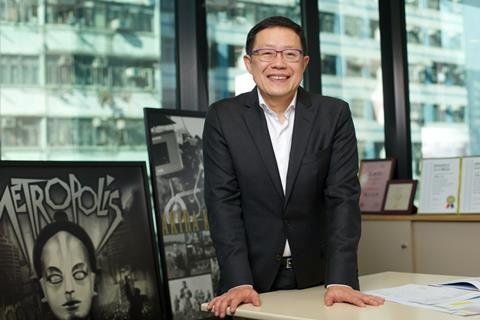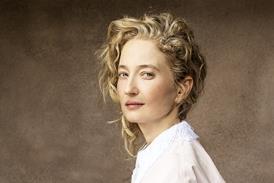
The Hong Kong International Film Festival (HKIFF) returns with its biggest in-person event since 2019, after being pushed back from March due to pandemic-related cinema closures.
The 46th edition of the festival will run from August 15-31 with nearly 300 physical screenings of more than 200 films alongside 41 online screenings.
Screen spoke with HKIFF executive director Albert Lee who oversaw one full edition in 2019 before the pandemic led to its cancellation in 2020 and a hybrid event last year. Lee is former CEO of Emperor Motion Pictures and a veteran industry executive with four decades of experience.
He reveals his highlights of the line-up, how the festival will handle the lack of international guests and the benefits of HKIFF’s move to August.
Has HKIFF’s delay been a blessing in disguise for this year’s programme, as the usual festival dates can mean it’s impossible to get Cannes titles in the same year?
For everything you lose, you gain something else. When we had to move from March to August, we had to let go of the bigger government venues like the Cultural Centre and the City Hall, which cannot be rebooked. To make up for the smaller venues in commercial theatres, we have extended the festival to 17 days (from 12).
Some of the pre-selected films couldn’t make the new dates because some are up on OTT platforms or have already been released. But the delay allows us to secure films from the recent Cannes film festival and present them as Asia premieres, which was hardly possible in the past. (Cannes titles include Emmanuelle Nicot’s Love According to Dalva, Maha Haj’s Mediterranean Fever, Saeed Roustaee’s Leila’s Brothers, Albert Serra’s Pacifiction, and Jean-Pierre and Luc Dardenne’s Tori And Lokita, which will be HKIFF’s closing film.)
Quarantine requirements still restrict international travel to Hong Kong. How do you keep the local audience engaged in the absence of international guests?
Every year we used to welcome many international guests to Hong Kong. The sharing sessions were always popular among the local audience. But we have moved them online and the number of sessions will be around the same as pre-Covid.
It will also be a live online post-screening talk for each masterclass with the Dardennes brothers, Ulrich Seidl and Chung Mong-Hong. The same goes for online Q&As with directors such as Kamila Andini for both Yuni and Before, Now & Then, and Dario Argento for his giallo film Dark Glasses. Although the audience can’t shake hands with filmmakers, hopefully they can do so next year.
Attending in-person is [Singaporean filmmaker] Anthony Chen for omnibus film The Year Of The Everlasting Storm. He will also be a member of the Firebirds Awards jury.
Your opening film, Where The Wind Blows, was selected as HKIFF’s opener last year before having to pull out. How has it made a comeback and been selected as your opener for a second time?
It’s probably unprecedented for any festival. Last year, ticketing had started when Mei Ah [Entertainment] informed us that the screening had to be cancelled – so the decision did not come from HKIFF. From my experience working at film studios, that could have been because of an issue with the production, the release date or censorship.
But we kept in touch with Mei Ah and director Philip Yung, and when we were told that it was still available as a world premiere, we were pleased to invite it back. If the festival had not been rescheduled to August, the film might not have been ready for March. It’s a coincidence and our luck.
What are some highlights of this year’s line-up?
The opening double bill Where The Wind Blows and Warriors Of Future are highly anticipated. There are a total of five new Hong Kong films, of which three are world premieres: Where The Wind Blows; Ho Cheuk Tin’s The Sparring Partner; and Mabel Cheung’s documentary To My Nineteen-Year-Old Self. Horror omnibus Tales From The Occult is a local premiere.
For fans of Hong Kong films, we have 10 features with Sandra Ng, who is our filmmaker in focus. She is an excellent comedy actor and has gone behind-the-scenes as director and producer. We also have new titles from Berlin and Cannes.
Restored classics are my personal interest. The tribute to Japanese actress Tanaka Kinuyo comprises seven of her films. She was also the second female film director in Japanese history – hardly an easy feat in a male dominated industry.

























No comments yet